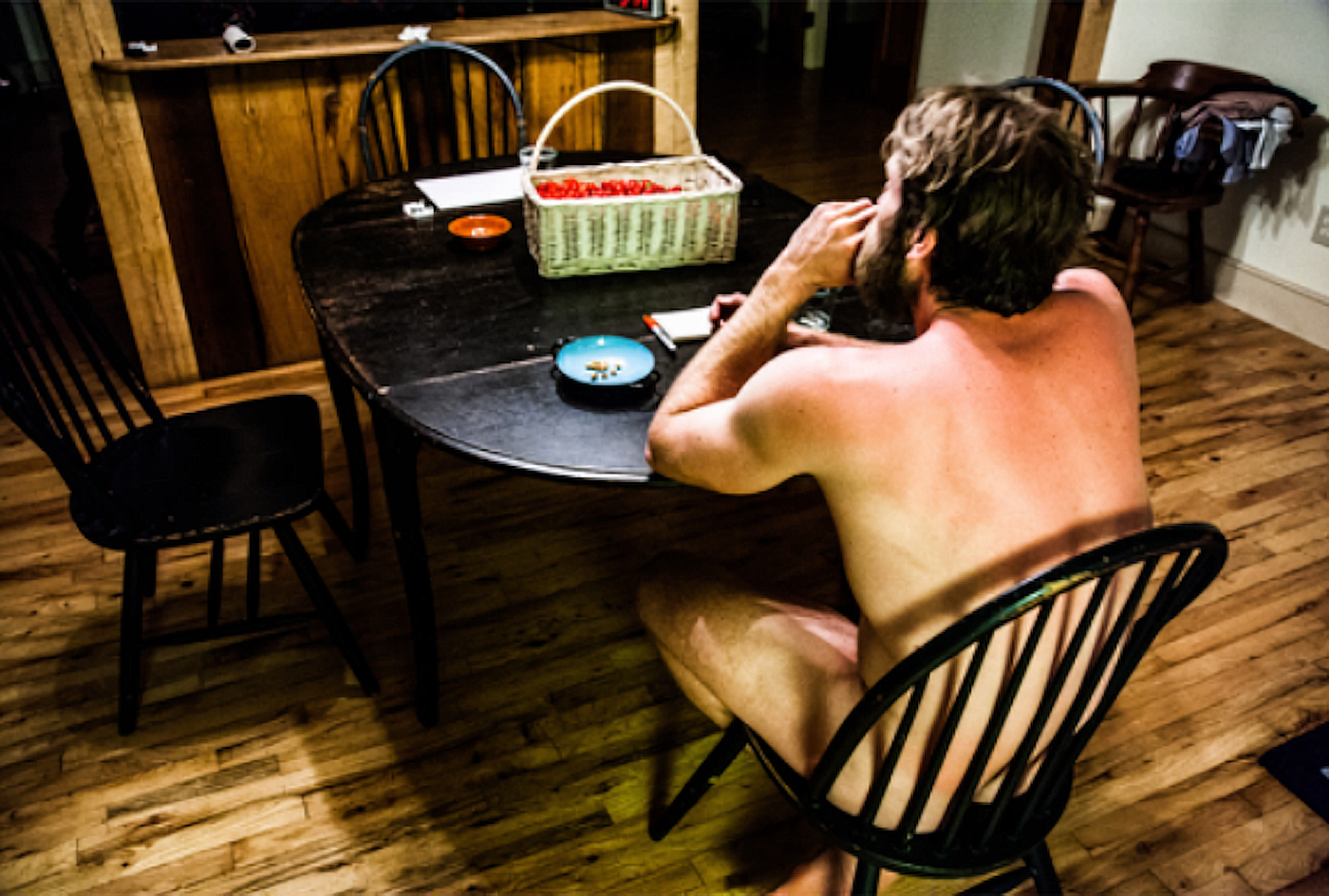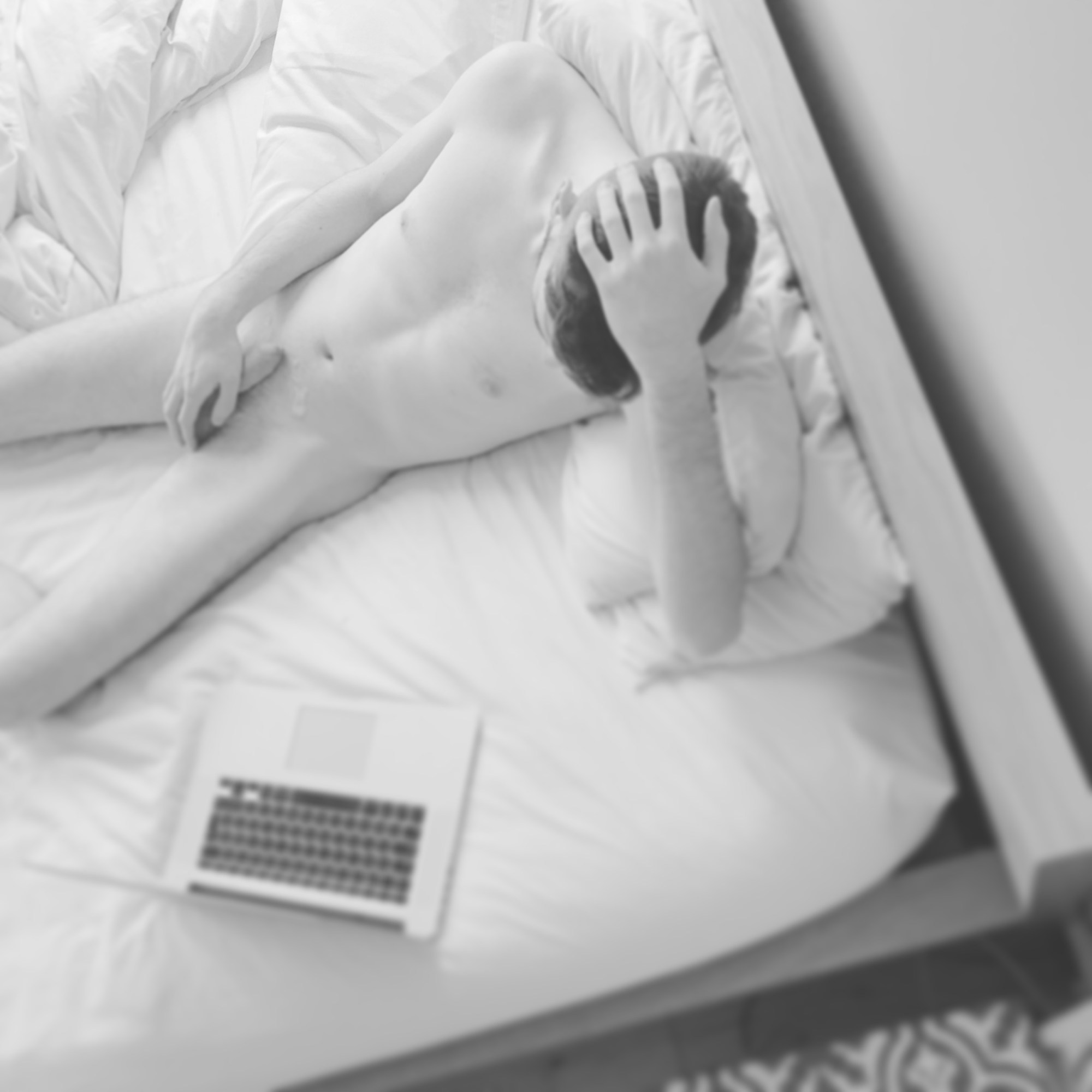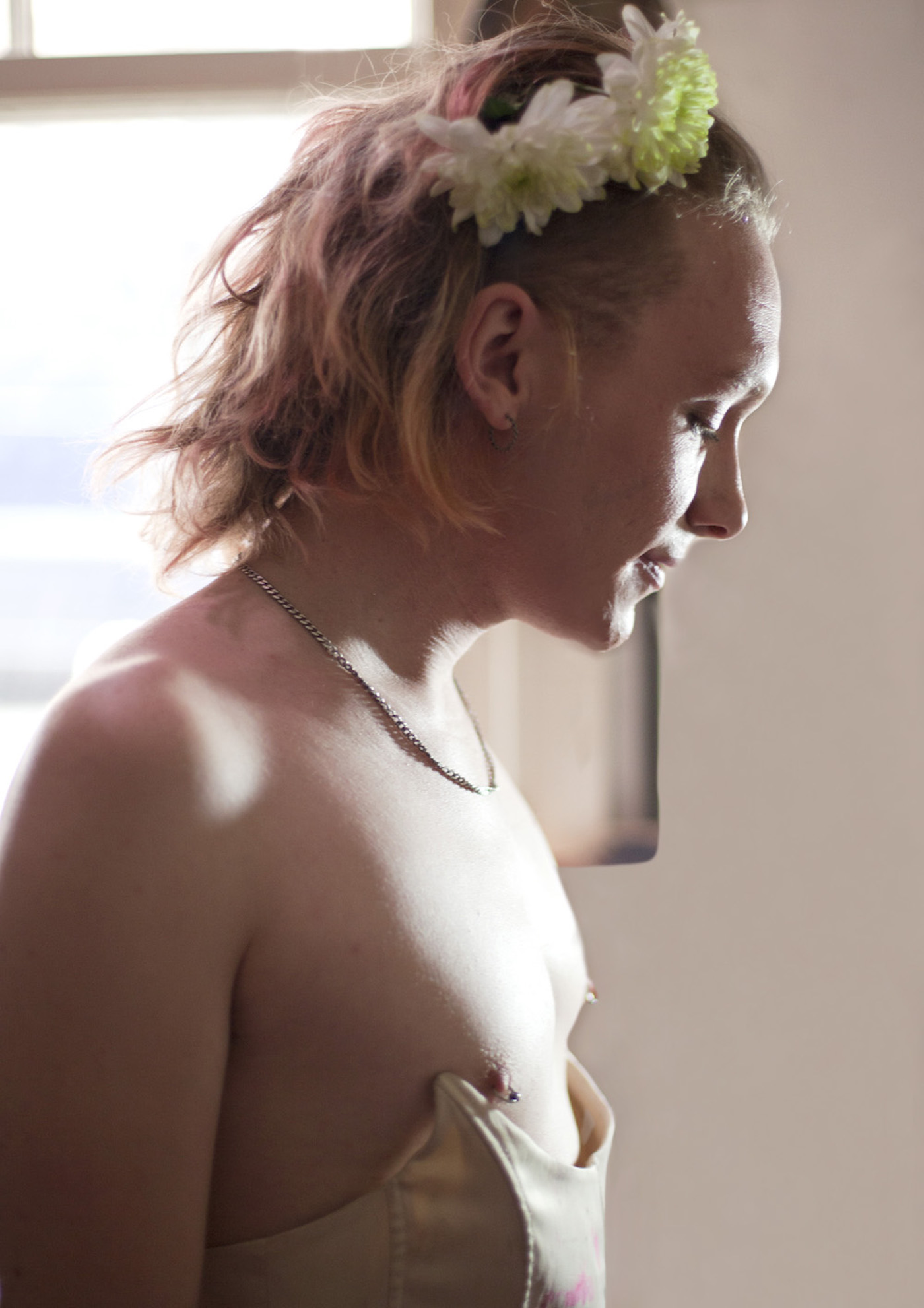The queer community is deeply familiar with loneliness. In a world dominated by straight culture, sometimes it can feel like you’re watching life from the sidelines. Falling for that straight guy, getting stuck on a carousel of anonymous hookups, hiding underneath your sheets at night and scrolling through “coming out” message boards. 18% of LGBT youth experience major depression. So it’s not surprising that loneliness, one of depression’s biggest side effects, has permeated gay culture.
Queer artist Richard Dodwell says he received inspiration to explore loneliness after his sister and close friend both committed suicide and he became seeped in it. The London-based creative came up with the haunting title Not Here: A Queer Anthology on Loneliness and called on his LGBTQIA friends to submit to the zine. “I suppose I am interested in creating a kind of unity,” Richard says. He says his motivation to tackle the pervasive, but underexplored, feeling of loneliness was to create a sense of wholeness “out of the chaos and grief and hell” of life. “I’m still figuring it all out really.”
The pieces in Not Here feel like jagged gems. The run-on sentences, tangents, and minute details suggest that these stories were ripped straight from the writers’ hearts and sent impulsively to Richard. For example, Paul Hughes recounts talking about Grindr with his straight friends and feeling a heavy sense of judgement. “I immediately feel like I never want anything to do with, or hear anything from, hetrosexuals again,” he writes. “I spend the rest of the evening slowly collapsing into this horrific depression, feeling inarticulate, and guilty, and like I’m spoiling the evening.”
It’s this kind of honesty that has made Not Here connect with readers around the world. After being published and distributed in London bookshops, the zine was recently stocked at New York’s Printed Matter. “I have had messages from parts of the world where being queer is illegal or punishable by death,” Richard says. “People have thanked me for giving them hope and making the feeling of loneliness so public.”
Richard talks to i-D about how being lonely has made him a better person and why he wants to explore joy next.

How did you decide to create a queer anthology about loneliness?
It was totally off-the-cuff. I’d never made a zine or anthology before, but as soon as I got the idea it all happened very quickly. It was at a time in my life when I was experiencing feelings of isolation. My sister and then a good friend had taken their own lives. It was all very jolting and strange. One day, I went along to a reading of David Wojnarowicz’s Close To The Knives organized by the writer Olivia Laing. It turned out to be a beautiful event full of communality and sharing. So that inspired me to create something in print form that could harness the spirit of coming together and talking about loneliness.
How long did it take to put the anthology together? What were some of the biggest hurdles?
From idea to publication, everything took less than three months. I put out an open call on Facebook and Twitter with a tight deadline for submissions. I wanted people to respond quickly and share how they were feeling right then and there, not having too much time to overthink it. The biggest hurdle for me, as someone with dyslexia and zero tolerance for technological mishap, was formatting the fucking thing. There were a few hiccups along the way. My boyfriend helped a lot. Another friend put up the money for the first-print run. For that, I am eternally grateful.

As a queer person, what has your own personal relationship to loneliness been like?
For me, loneliness — like all grief — is a queer experience. I think loneliness has been one of the most informative experiences of my life. Growing up in a rural, conservative community, moving to the city, feeling adrift, feeling dissatisfied with the idea that, as a queer person, I now have rights and should be happy and grateful and should go along with the status quo. For me, loneliness has and will continue to shape my work. Creatives like Colby Keller, Marc Hundley, and Alice Goodman contributed to the zine.
What projects do you have in the works now?
There’s going to be a new anthology in 2018. It’s going to take a rather different turn, I think. The same free, open-call idea, but in response to an emotion and area of life I’ve been thinking about for a while. Perhaps more naive and hopeful than I’ve previously felt, or been able to feel. It might not even work. But maybe that’s where I get my excitement from these days.
I have a working title: Over There, A Queer Anthology of Joy.
How did you connect with the artists featured?
I put out an open call on social media revealing the title and asking people to respond to it. It wasn’t very formal. In fact, it was a bit haphazard and embarrassing. At first, it was just a thing between my friends and whoever they shared the call with. But then it went further than I’d imagined. I also invited a few people I thought were interesting in relation to queer politics and loneliness, i.e. the porn star Colby Keller and writer/activist Sarah Schulman. I suppose I did this for selfish reasons — I wanted to have the people I most admired in something I’d created with my own hands. It was a way to counteract my own sense of rejection and isolation from mainstream culture.
